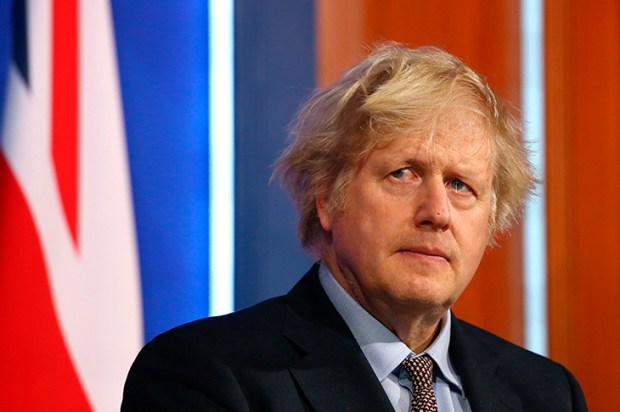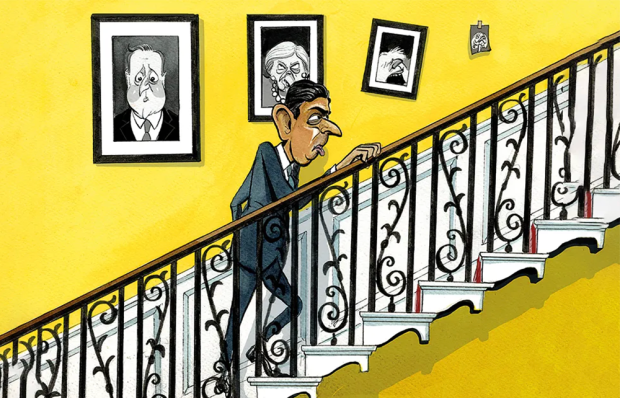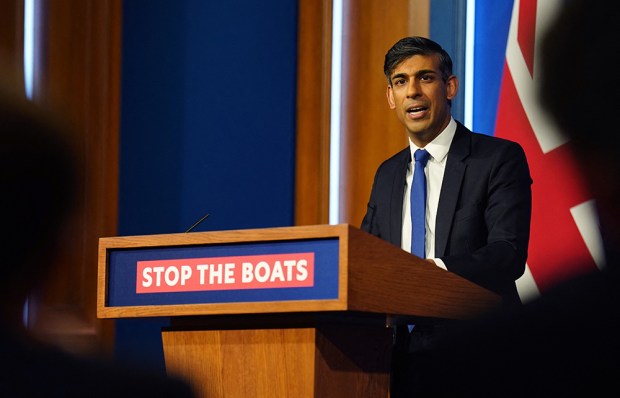In principle I’m in favour of vaccination passports, and don’t understand how — again in principle — anyone could be against the theory. One can have severe doubts about whether our NHS, pubs, theatres, sports grounds and restaurants would actually be capable of operating such a scheme, yet at the same time think it would be an excellent thing if they were. To me it seems not just sensible and fair but obvious that access to jobs or spaces where there is an enhanced risk of viral transmission might be restricted to people who could demonstrate a high degree of immunity.
I’d add that in order for the idea to command widespread public acceptance, it might be best to wait until anybody who wants to be vaccinated has had free access to vaccination. At that point, good reasons in principle to resist the proposal elude me altogether.
That’s an opinion I’d be happy to defend. What I will not do is accept that those of us who take this view are the ‘big state’ and ‘pro-regulation’ nannies, the people eager to be ‘bossed around’, while the anti-passports brigade are the ‘libertarians’. There is absolutely nothing libertarian about delaying the lifting of lockdown for everybody, just because it wouldn’t be safe for somebody.
One of the ways you know there’s a serious category mistake in play here is when you read that prominent among the 70-plus ‘Tory libertarians’ resisting ‘creeping authoritarianism’ is Sir Iain Duncan Smith. Sir Iain holds his views in good conscience and many share them, but a parliamentarian who voted against civil partnerships in 2004, against reducing the age of homosexual consent from 18 to 16 in 2001, and against reducing the age of consent from 21 to 18 in 1994 (and wasn’t present in the 1967 parliament to vote against any decriminalisation at all) is not a card-carrying libertarian. Mercifully, Iain saw the light in 2013 and voted for gay marriage, but that makes him at best a probationary freedom lover. What, though, does opposing vaccine passports have to do with freedom or ‘liberty’?
‘Libertarian’ has always been a fuzzy term, but can be said to connote certain instincts at least, about freedom of action and personal autonomy. For me, Enoch Powell put it most succinctly when he talked of the right of each of us ‘to choose his own path to the everlasting bonfire’. Libertarianism has tended to be associated with the right rather than the left in politics, not least because in the perennial debate about how far the state should leave the citizen to sink or swim, the libertarian favours the ‘sink or swim’ tendency.
There exists a scratchy marriage of convenience between those on the right who really do believe in personal freedom, and those who believe in low taxes and a small state. There’s convenient overlap between the two, of course. Some right-wingers, opposing measures that extend the apparatus and the reach of the state, profess to do so on ‘libertarian’ grounds because this sounds more principled than acknowledging their underlying motivation: dislike of the cost. I’m put in mind of John Clare’s cry from the heart in his wonderful poem ‘To a Fallen Elm’, railing against the Enclosures:
Thou’st heard the knave, abusing those in power,
Bawl freedom loud and then oppress the free;
Thou’st sheltered hypocrites in many a shower,
That when in power would never shelter thee …
With axe at root he felled thee to the ground
And barked of freedom — Oh I hate the sound.
When younger I was attracted to the libertarian side of the argument, and sometimes still am. Libertarians have tended to support leaving people to make a nuisance of themselves. Confronted with proposals for state regulation, the libertarian tends to be against them. Let me offer a few examples where we can guess on which side of an argument a libertarian would often fall. Many libertarians were against legislation making it compulsory for motorcyclists to wear helmets. Most (including me, at the time) were against compulsory seat belts. Many (including me) would support assisted dying. Many (not all) are pro-choice in the abortion debate. And there is a strong libertarian case against the prohibition of recreational drugs.
Some of these arguments are more eccentric than others, and many are available to those on the left as well as the right in politics. But there’s one strand in libertarian thinking that plainly favours the right: ‘personal responsibility’. In the great Covid debates, this can (just about) be twisted into the service of the anti-lockdown cause, and it’s no coincidence that a sizeable quotient of parliamentarians on the right lean on freedom-based rather than clinically based arguments against lockdown. But it simply doesn’t work, philosophically or practically, against vaccination passports.
The passport proposal aims to liberate. None of its opponents (so far as I know) is suggesting that we open up cinemas and pubs to all comers now, regardless of the threat to public health. So what does their opposition amount to? It can surely only mean keeping these places closed to everybody, including to people who would present minimal risk, until nobody at all presented a serious risk. What is libertarian about that? In what way does it advance freedom or personal responsibility? Most of the libertarians I know would argue that men who want to join men-only, or women women-only, clubs should be free to ‘discriminate’ in this way. Were government to propose to abolish a pub landlord’s right to refuse admission, most libertarians would swing behind the publican, not the government. Yet when it comes to theatregoers who might be pleased that individuals who would be a risk to themselves or others were excluded, this somehow offends ‘libertarian’ principles. How so?
Oppose freeing up spaces only for those who are safe there, by all means. But don’t call this libertarian. We who seek ways to open up are the freedom lovers.
Got something to add? Join the discussion and comment below.
Get 10 issues for just $10
Subscribe to The Spectator Australia today for the next 10 magazine issues, plus full online access, for just $10.
You might disagree with half of it, but you’ll enjoy reading all of it. Try your first month for free, then just $2 a week for the remainder of your first year.














Comments
Don't miss out
Join the conversation with other Spectator Australia readers. Subscribe to leave a comment.
SUBSCRIBEAlready a subscriber? Log in